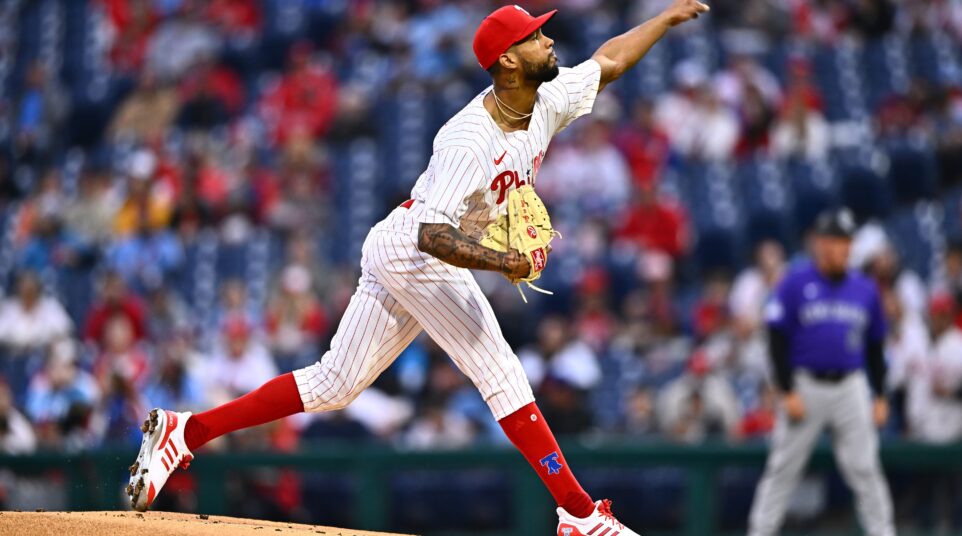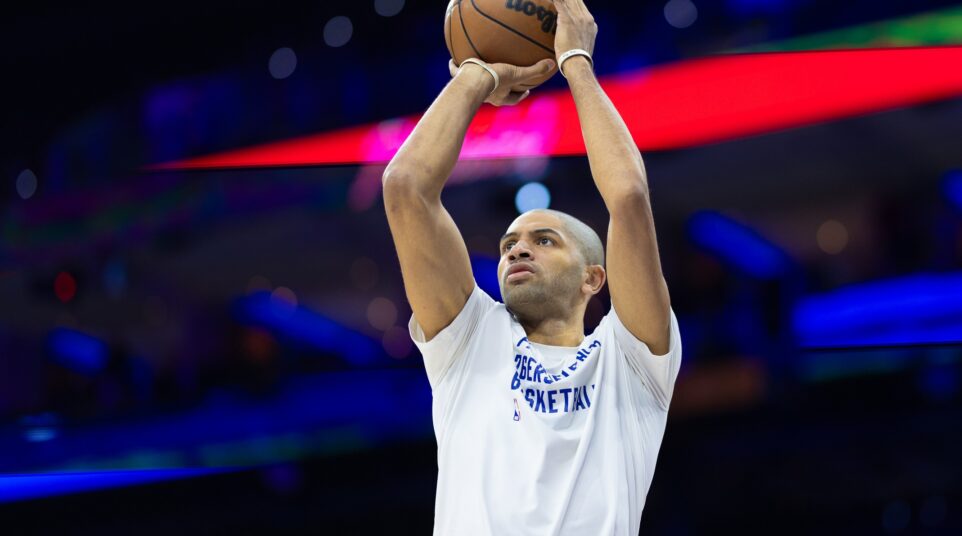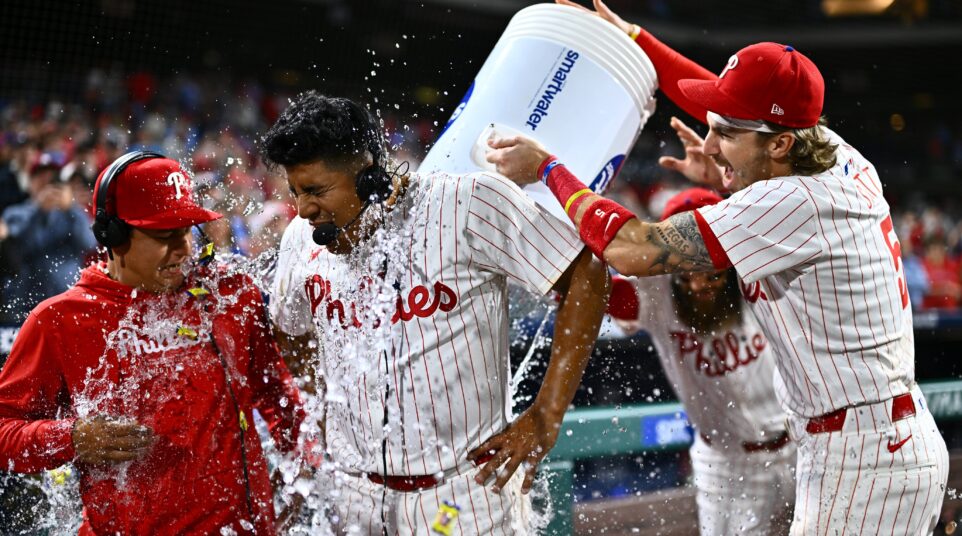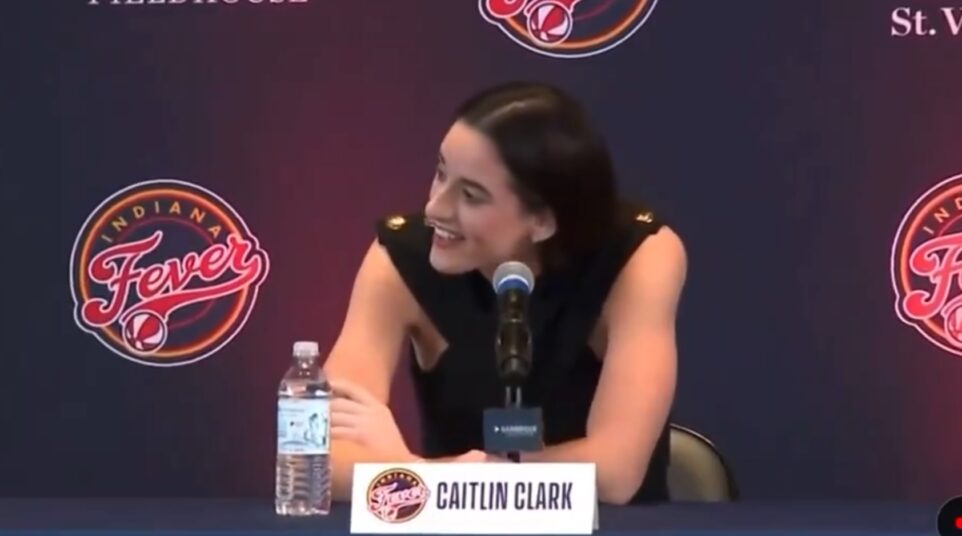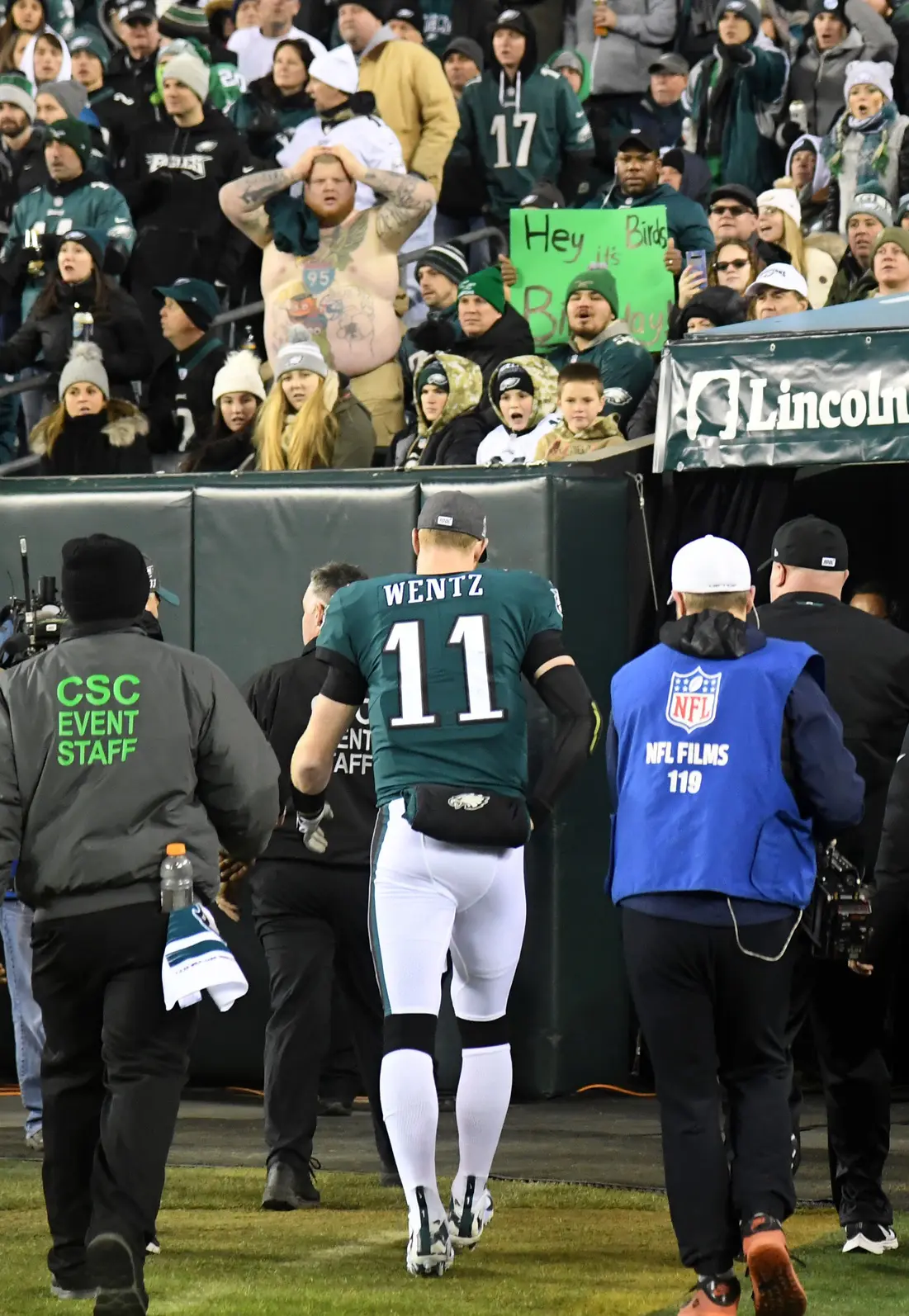
What Did Carson Wentz Do to Josina Anderson?
During her tenure as NFL insider and reporter for ESPN, Josina Anderson has developed a knack for cultivating sources that have critical opinions of Carson Wentz.
Last November, as the Eagles sunk below .500, Anderson used her platform to amplify criticism from an anonymous player who had grown frustrated with the offense, particularly quarterback Carson Wentz’s reliance on Zach Ertz.
This year, the October surprise Anderson provided the Eagles came courtesy of another anonymous player who had grown frustrated with Wentz’s perceived penchant to chase the home run rather than make the safer throw to his check down option.
Receivers Nelson Agholor and Alshon Jeffery denied that they were Anderson’s source; in late October, the ESPN reporter seemed to suggest that former Eagle Orlando Scandrick was the 2019 mole in the Birds’ locker room after the corner openly berated the organization on Fox Sports’ Undisputed.
Whether the unattributed carping had any effect on Wentz’s play is unclear. What is indisputable is the Eagles quarterback rallied his team when the organization had hit rock bottom at 5-7. Against the odds, and in spite of the spate of injuries that decimated Philadelphia’s roster, the Eagles won four in a row and punched their ticket to the postseason for the third straight time.
They made the playoffs in no small part due to Wentz’s outstanding play. In the critical four-game December stretch that defined the season, Wentz completed nearly 68 percent of his passes, tossing 7 touchdowns and 0 interceptions. He did it throwing to practice squad standouts like Greg Ward; roster castoffs like Deontay Burnett and Josh Perkins; and underperforming draft picks like J.J. Arcega-Whiteside.
The right side of the offensive line disappeared. Prime weapon Zach Ertz took his leave after fracturing a rib and lacerating a kidney. Starting running back Jordan Howard couldn’t shake a shoulder injury, joining Corey Clement and Darren Sproles on the list of walking wounded.
And yet, Wentz endured. In so doing, he grew into the leadership role that was essentially endowed to him due to his status as franchise quarterback
Wentz’s reward for his resilience in the face of adversity was his first chance to step onto the postseason stage. He had earned back the very moment that an untimely injury had taken from him during an MVP-caliber 2017 campaign.
After two series, it was over. Wentz exited the game with a concussion shortly after his head was driven into the ground by Seahawks pass rusher Jadeveon Clowney:
No flag here?? Ok… pic.twitter.com/vxSYJMN5wP
— Warren Sharp (@SharpFootball) January 5, 2020
After the game, referee Shawn Smith ruled the hit “incidental contact” and cited Wentz’s failure to give himself up on the play as a factor that led the officials to keep the flags tucked in their pockets.
Let’s stipulate that many of the judgments we make as fans can be a bit unfair. We have the luxury of watching in slow motion a game that is played at a breakneck pace by elite athletes. That said, Clowney’s hit was dirty. There was no reason to drop his full weight on a ball carrier who was heading to the ground and in no position to brace himself for impact. The Eagles quarterback was just as defenseless as he would have been delivering a pass while being taken to the ground with Clowney’s full weight landing on him, which would generate a roughing the passer penalty. Clowney’s leading with his helmet as he launched himself into Wentz speaks for itself.
If you thought the universal reaction to the hit would be outrage that an illegal football play deprived Wentz of the ability to finish the game, you would be wrong. The problem, you see, wasn’t with Clowney and his failure to restrain himself. No, the issue was with Carson Wentz and his failure to stay healthy.
One such critic of Wentz was Hall of Fame hopeful Torry Holt, who noted on Twitter “there’s always something with Wentz.” Anderson promptly cosigned Holt’s analysis:
Here, we kept this receipt pic.twitter.com/EwzvBZfa3N
— Mikey Miss Blocked Me (@rock082082) January 6, 2020
To her credit, and more than likely as a result of the mounting backlash to her tone-deaf comment, Anderson did ask Clowney for his perspective on the hit that knocked Wentz out of the game. It was more than NBC, which broadcast the game, could be bothered to do.
And yet, it’s one thing to make yourself available to any player on the Eagles roster who has an axe to grind with Wentz. It’s quite another to reinforce a stupid take blaming an injured player for dealing with the consequences of another player’s reckless actions. It’s not what a journalist who supposedly covers the league objectively should do.
But Anderson is not a journalist, just like most of her peers who exist to pass along unfiltered gossip. She provides grist for the outrage mill that powers the sports talk universe, generating content that begets more content and furthering perceptions that do not always mirror reality. Here’s how it works:
“NFL Insider Josina Anderson reports that an anonymous teammate is criticizing Carson Wentz. Let’s get Stephen A’s reaction!”
“PTI Guys: Do you have a reaction to Stephen A’s reaction?”
“Around the Horn: Please comment on Jason Kelce’s reaction to Michael Wilbon’s reaction to Stephen A’s reaction.”
“SportsCenter: Let’s get a roundup of all of the reactions. And what say you, Twitter world?”
It’s a carousel of hyper-reactive bullshit, powered by networks and their army of employees who have consistently demonstrated too little interest in good reporting. How else can we explain the tendency of reporters to run to the cameras, with the blessing of producers, as soon as a single source drops a juicy tidbit of locker room gossip?
Perhaps the problem is with the viewing audience. After all, we are the ones who reward shows that prioritize hot takes over solid information and informed analysis. Then again, do we have other options?
Maybe I am a part of the problem, too, reacting as I am to a reaction. Maybe this is not a rock any of us in the content business are ready to turn over.
Nonetheless, much was made of Carson Wentz’s character after last season, in no small measure due to an article authored by Philly Voice’s Joe Santoliquito. While I thought Santoliquito allowed the musings of six anonymous players to drive a narrative about Wentz’s selfishness at the expense of others who disagreed on the record, he at least was willing to balance his article with dissenting views. It’s more than what we have seen from some of Santoliquito’s national competitors.
When the level of adversity this organization faced reached absurd heights, Wentz revealed that the competitiveness that may have manifested itself as selfishness last season produced greatness this year. He refused to quit on this season and on the players who remained healthy enough to finish out the campaign. In so doing, he showed his true character.
And, once Wentz’s season again ended prematurely, so did his critics.


